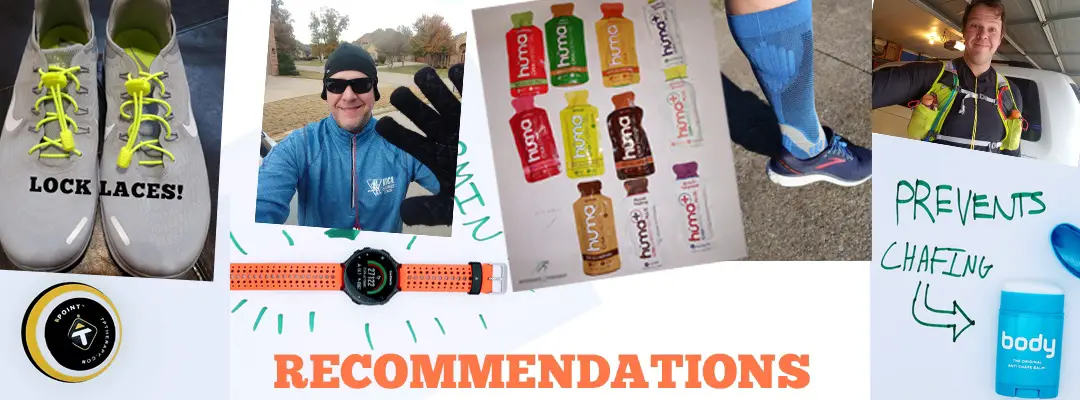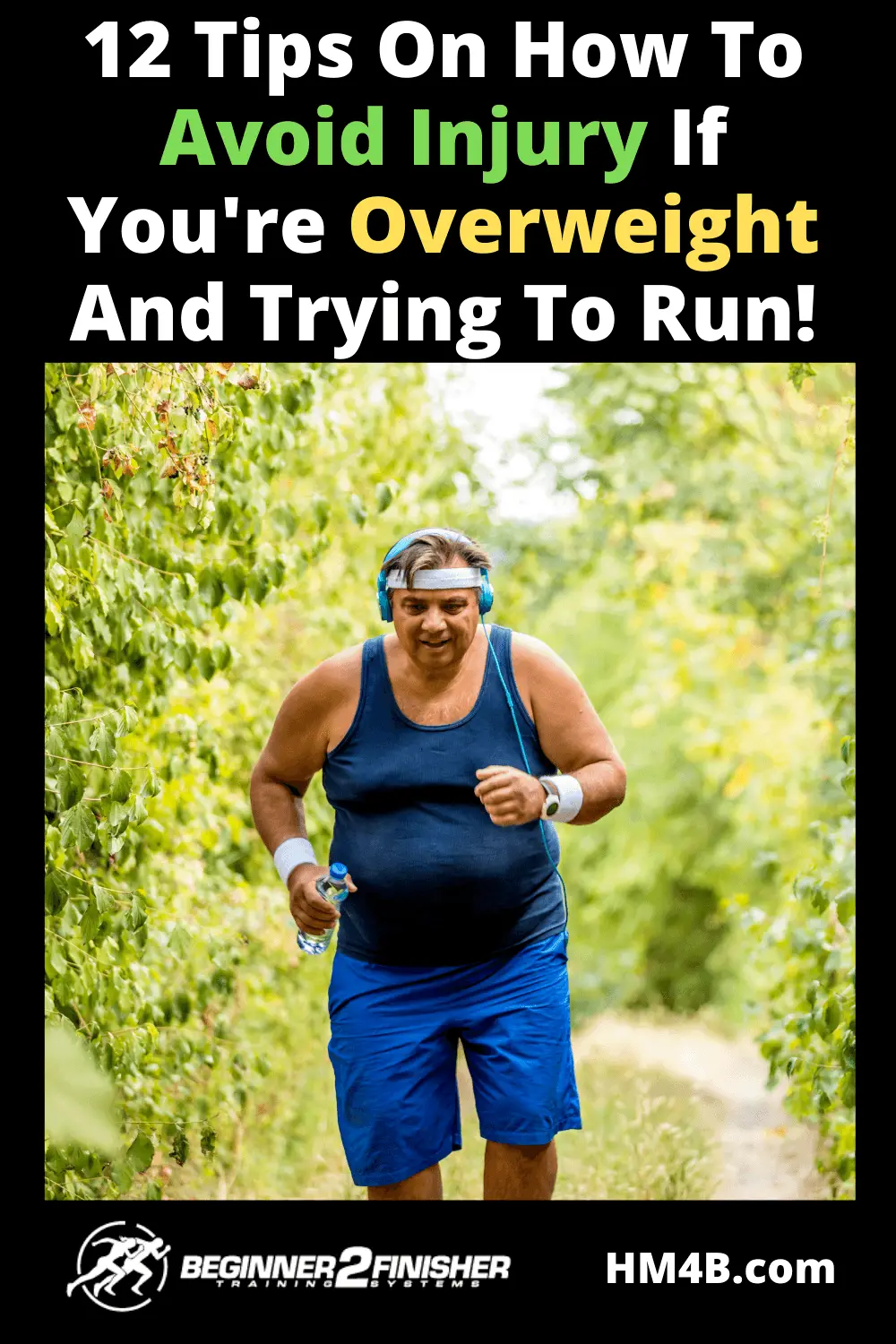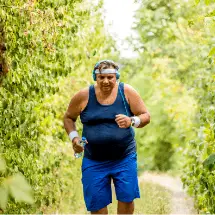If you’re a little on the heavy side and you have been thinking of taking up running, you’re probably primarily concerned with injury. The more overweight you are, the more stress exercise puts on your joints and muscles, so you might be wondering how you can avoid hurting yourself.
Here are 12 top tips on not injuring yourself if you’re overweight and trying to run.
Some of our top tips include the walk and run method, proper warm-up and cool-down routines, and being sensible about the amount of training you do. All of these approaches will help you to avoid injuring yourself.
Tip One: Walk And Run
You might feel like it’s cheating to walk instead of running, but this is a key strategy for any runner, even more, advanced athletes. You can benefit a lot from choosing this method, and it has been proven to reduce muscle soreness and improve your ability to keep going for longer.
Try the walk-run method out as one of the best ways to help yourself run without causing injury. The short breaks allow your muscles time to recover and give you chance to take a breather without imposing abrupt stops into your workout. This is much better for you.
Tip #2: Warm Up Properly
Before you do any kind of exercise, you need to thoroughly warm up your muscles, and this is particularly true if you are not in shape to start with. You should do some gentle stretching prior to every run, even if you just start with a brisk walk.
Keep moving as you stretch, and save static stretching for after your run. This makes your muscles more flexible and reduces the risk of injury.
Related: Should you do cardio before or after weight training?
Tip #3: Try Aqua Jogging
Have you heard of aqua jogging? This is a great exercise for individuals that need a little less impact on the joints. Check out my detailed post on what aqua jogging is and how to get started with simple routines.
Tip #4: Cool Down Properly
A warm-up is a well-known aspect of running safely, but cooling down can also help. If you are heavy, you’re more likely to get post-run soreness, so give your muscles a chance to realize that the exercise is over by following a proper cool-down routine.
You can do this with some deep stretches, as your muscles should now be thoroughly warm and ready to handle more difficult stretches. Make sure you cool down your leg muscles, but think about other muscles too, like your shoulders, neck, etc.
Related: How To Properly Cool Down In 3 Easy Steps!
Tip #5: Don’t Over Train
If you’re overweight, you’re probably running to reduce your weight, and you might be determined to knock off a few pounds in record time. However, this isn’t a good idea. Remember, running takes a lot more effort for someone who is overweight than for someone who is slim.
No matter how enthusiastic you are to get going and get into shape, it’s important not to overdo it. This is the surest way to injure yourself, so set up a sensible and realistic training routine and stick to it.
Related: Is It OK To Run If I’m Overweight
Tip #6: Take Rest Days
Linked in with the above, don’t try to train every day. Again, it may feel like you need to in order to be a “serious runner,” but in actual fact, rest days help even advanced athletes to train better.
Rest days give your muscles an opportunity to recover. You will often find that you run more effectively and faster when you have had a break. You can still exercise during a rest day, but let your running muscles off the hook.
Related: Which Exercise Machine Is The Best At Helping You Lose Weight?
Tip #7: Get Proper Footwear
Shoes make a big difference to any runner and the wrong shoes can cause injury even to a superbly fit person. If you’re overweight, you’re putting more stress on your joints and increasing the impact of every step.
That makes good footwear crucial. Go to your local sportswear store and talk to the staff about getting shoes fitted properly, as you will find yourself much better off if your shoes are comfortable. Shoes that aren’t supportive result in knee pain, increased stress, and joint injuries.
You may want to chat to an orthopedist about finding shoes to suit you so you can be sure you get the right ones for you.
Related: How To Fortify Your Mind To Help You Lose Weight!
Tip #8: Choose Compression Gear
This is slightly more about comfort than injury, but compression gear is great if you’re suffering from chafing. You might find that your thighs rub together or parts of your body are uncomfortable when you run because you are hot and the skin chafes.
Compression gear will solve this issue and can make running more comfortable, reducing blisters and soreness.
Tip #9: Listen To Your Body
Learn the difference between muscle soreness and real pain that tells you something is wrong. When something hurts intensely or without stopping, you need to cease running and take a break. Soreness is natural, but pain is an indicator of a problem.
Related: 20 Benefits Of Running 3 Times A Week – Your Key To A Healthier Life!
Related: 10 Tips To Keep Running When You Feel Like Stopping
Tip #10: Choose Soft Surfaces
Running on a hard surface increases the amount of impact you take on each step. If you can run on grass, dirt, sand, or another soft surface, choose to do so. You will find your runs much more comfortable and better for you.
Related: Which surfaces are best to run on?
Tip #11: Refuel
Don’t starve yourself trying to lose weight; you need fuel to run. Make use of food apps or a doctor-approved eating plan to make sure you are giving your body what it needs to run sustainably and safely. Running burns carbohydrates, and you need to replenish those even if you want to lose weight.
Related: Does Vibration Training Help You Lose Weight?
Tip #12: Do Some Strength Training
It’s a good idea to combine running with other forms of exercise. This will build your muscles up and make running easier, so consider strength training or something gentler like yoga. Pilates is another great sport to pair with running.
Related: Best Quad Bodyweight Strength Training Exercises For Runners
Tip #13: Build Up Gradually
Nobody becomes a pro runner overnight. You need a sensible plan with realistic goals, and you need to know when to cut yourself some slack and slow down. Pushing too hard will inevitably lead to injury.
Talk to other runners, assess your current fitness levels and where you want to be later, and use this to take a sensible approach to running.
Related: Why Am I Struggling To Lose Weight While Running
Tip #14: Running Slow Is Ok
There is nothing worse than having someone else tell you that you are a slow runner. I know, I’ve never been the fastest runner in the first place. As long as you are actively out running, even if it’s slow, you’re still getting in your exercise. Here are two posts that I have written that dive into slow-consistent running and why it’s almost more important than faster running workouts:
Related: What Is LSR In Running? Can It Improve My Running?
Related: Can 80/20 Running improve my running?
Conclusion
People who are overweight can certainly enjoy running and if you follow these twelve top tips, you should significantly reduce your risk of injury. Be careful, particularly when you are getting started as a runner.
| Help support me and subscribe to my YouTube channel. YouTube video - 30 ways to make your runs less painful! Coach Scott's Credentials:
|
To sign up for a FREE half marathon training schedule, log sheet, and pace predictor CLICK HERE.

Recommended gear for runners
Connect with me:
| facebook.com/BeginnerToFinisher/ |
References
https://www.betterhealth.vic.gov.au/health/healthyliving/running-and-jogging-preventing-injury
https://www.health.com/fitness/how-to-start-running



2 thoughts on “13 Tips To Help Avoid injury If You’re Overweight And Trying To Run”